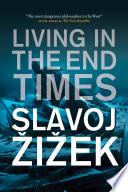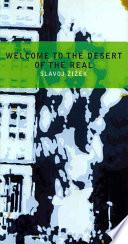“We feel free because we lack the very language to articulate our unfreedom.”
"Introduction: The Missing Ink", in Welcome to the Desert of the Real!: Five Essays on September 11 and Related Dates (2002), p. 2
Slavoj Žižek is a Slovenian continental philosopher. He is a professor at the Institute for Sociology and Philosophy at the University of Ljubljana and international director of the Birkbeck Institute for the Humanities of the University of London. He works in subjects including continental philosophy, political theory, cultural studies, psychoanalysis, film criticism, Marxism, Hegelianism and theology.
In 1989, Žižek published his first English text, The Sublime Object of Ideology, in which he departed from traditional Marxist theory to develop a materialist conception of ideology that drew heavily on Lacanian psychoanalysis and Hegelian idealism. His early theoretical work became increasingly eclectic and political in the 1990s, dealing frequently in the critical analysis of disparate forms of popular culture and making him a popular figure of the academic left. A critic of capitalism, neoliberalism and political correctness, Žižek calls himself a political radical, and his work has been characterized as challenging orthodoxies of both the political right and the social-liberal universities.Žižek's idiosyncratic style, popular academic works, frequent magazine op-eds, and critical assimilation of high and low culture have gained him international influence, controversy, criticism and a substantial audience outside academe. In 2012, Foreign Policy listed Žižek on its list of Top 100 Global Thinkers, calling him "a celebrity philosopher" while elsewhere he has been dubbed the "Elvis of cultural theory" and "the most dangerous philosopher in the West". Žižek's work was chronicled in a 2005 documentary film entitled Zizek! A scholarly journal, the International Journal of Žižek Studies, was founded to engage his work.

“We feel free because we lack the very language to articulate our unfreedom.”
"Introduction: The Missing Ink", in Welcome to the Desert of the Real!: Five Essays on September 11 and Related Dates (2002), p. 2
Lecture "Year of Distraction" http://www.youtube.com/watch?v=ChWXYNxUFdc, at 1:07.
159
The Sublime Object of Ideology (1989)
Interview in HARDtalk, BBC World Service (12 January 2010)
130
The Sublime Object of Ideology (1989)
24-25
The Sublime Object of Ideology (1989)
Conversations with Žižek by Slavoj Žižek and Glyn Daly (Cambridge: Polity Press, 2004), p. 45
Source: Less Than Nothing (2012), Chapter Two, The Thing Itself: Hegel, pp. 200
80
The Sublime Object of Ideology (1989)
203
The Sublime Object of Ideology (1989)
first through the Soviet intervention
"Disputations: Who Are You Calling Anti-Semitic?" in The New Republic (7 January 2009) http://www.tnr.com/article/politics/disputations-who-are-you-calling-anti-semitic
The Fragile Absolute: or, why is the Christian legacy worth fighting for? (London: Verso, 2000, ), p. 111.
6
The Sublime Object of Ideology (1989)
“Prohibition of desire leads to desire for prohibition.”
Source: Slavoj Žižek: Wokeness, Psychoanalysis, and Quantum Mechanics | Robinson's Podcast. https://www.youtube.com/watch?v=IxmZ4AVac7U
Source: Less Than Nothing (2012), Chapter One (The Drink Before), Vacillating The Semblances
Context: The implicit lesson of Plato is not that everything is appearance, that it is not possible to draw a clear line of separation between appearance and reality (that would have meant the victory of Sophism), but that essence is "appearance as appearance,"that essence appears in contrast to appearance within appearance; that the distinction between appearance and essence has to be inscribed into appearance itself. Insofar as the gap between essence and appearance is inherent to appearance, in other words, infsofar as essence is nothing but appearance reflected into itself, appearance is appearance against the background of nothing - everything appears ultimately out of nothing.
106
The Sublime Object of Ideology (1989)
Source: The Sublime Object of Ideology (1989), p.33, Idea's Appearing
190
The Sublime Object of Ideology (1989)
that is, the lack in the Other.
148
The Sublime Object of Ideology (1989)
First as Tragedy, Then as Farce (2009)
67
The Sublime Object of Ideology (1989)
38
The Sublime Object of Ideology (1989)
that's a MacGuffin, a pure nothing which is non the less efficient... what Lacan calls object petit a: a pure void which functions as the object cause of desire.
183
The Sublime Object of Ideology (1989)
“What cannot be described should be inscribed into the artistic form as its uncanny distortion.”
Source: Less Than Nothing (2012), Chapter One (The Drink Before), Vacillating The Semblances
Context: The horror of the Holocaust cannot be represented; but this excess of represented content over its aesthetic representation has to infect the aesthetic form itself. What cannot be described should be inscribed into the artistic form as its uncanny distortion.
Anecdote about the Soviet suppression of the Prague Spring in 1968, quoted in The New Yorker (5 May 2003), p. 39 http://books.google.com/books?id=AZQeAQAAMAAJ&q=%22cakes+and+watching+Russian+tanks+against+demonstrators.+It+was+perfect%22&dq=%22cakes+and+watching+Russian+tanks+against+demonstrators.+It+was+perfect%22&hl=en&ei=3HRhTpzzPIrv0gGwiazpDw&sa=X&oi=book_result&ct=result&resnum=1&ved=0CCoQ6AEwAA
Source: The Sublime Object of Ideology (1989), pp.27, "Totalitarian Laughter"
xi
The Sublime Object of Ideology (1989)
45
The Sublime Object of Ideology (1989)
Reverberations 2. Reverberations of the Crisis in a Multi-Centric World
Living in the End Times (2010)
33
The Sublime Object of Ideology (1989)
15
The Sublime Object of Ideology (1989)
Conversations with Žižek by Slavoj Žižek and Glyn Daly (Cambridge: Polity Press, 2004), p. 42
Source: Less Than Nothing (2012), Chapter One (The Drink Before), Vacillating The Semblances
165
The Sublime Object of Ideology (1989)
"Disputations: Who Are You Calling Anti-Semitic?" in The New Republic (7 January 2009); Žižek is here quoting a statement he made in a prior essay to distinguish what he had actually said with such assertions as he was portrayed as having made. He asserts that Hitler for all his bluster and brutality was a promoter of established economies and less boldly revolutionary in his ideas and actions than Gandhi.
In Defense of Lost Causes (2008)
the right to worship false gods.
The Fragile Absolute: or, why is the Christian legacy worth fighting for?
The fool answered: 'Yes of course I know that, but does the hen know?'
33
The Sublime Object of Ideology (1989)
32
The Sublime Object of Ideology (1989)
“A spectre is haunting Western academia (…), the spectre of the Cartesian subject.”
The Ticklish Subject: The Absent Centre of Political Ontology (London/New York: Verso, 1999), p. 1.
Source: First as Tragedy, Then as Farce (2009), Chapter One, The Structure of Enemy Propaganda
150
The Sublime Object of Ideology (1989)
OR IT MEANS NOTHING AT ALL.
"Reflections on WTC: Third Version" http://www.cosmos.ne.jp/~miyagawa/nagocnet/data/zizek.html#article01, Free Speech (7 October 2001)
Interview in The Believer magazine, (July 2004) http://www.believermag.com/issues/200407/?read=interview_zizek
Source: The Plague of Fantasies (1997), Chapter One: The Seven Veils of Fantasy
As quoted by Eugene Wolters, " Professor of the Year: 'If You Don't Give Me Any of Your Shitty Papers You Get an A http://www.critical-theory.com/professor-of-the-year-if-you-dont-give-me-any-of-your-shitty-papers-you-get-an-a/'", Critical-Theory.com, May 26 2014; square brackets and lack of accent marks as in orginal
Source: First as Tragedy, Then as Farce (2009), Chapter One, Human, All Too Human
"A Glance into the Archives of Islam" http://www.lacan.com/zizarchives.htm, Lacan dot com (2006)
204
The Sublime Object of Ideology (1989)
“See you, either in Hell, or in Communism.”
Parting remark in "The Culture Show" (2010)
97
The Sublime Object of Ideology (1989)
Source: Less Than Nothing (2012), Chapter Two, The Thing Itself: Hegel, pp. 198
“Heidegger is 'great' not in spite of, but because of his Nazi engagement…”
In Defense of Lost Causes (2008)
the the death of the so-called real object in its symbol, but the obliteration of the signifying network itself.
147
The Sublime Object of Ideology (1989)
Vacillating the Semblances
Less Than Nothing (2012)
Interview http://www.youtube.com/watch?v=w7d-m3ko_eg&feature=feedrec_grec_index
Welcome to the Desert of the Real!: Five Essays on September 11 and Related Dates (London: Verso, 2002, ISBN 1-859-84421-9), p. 16
33
The Sublime Object of Ideology (1989)


